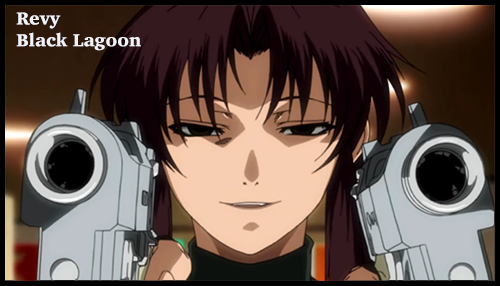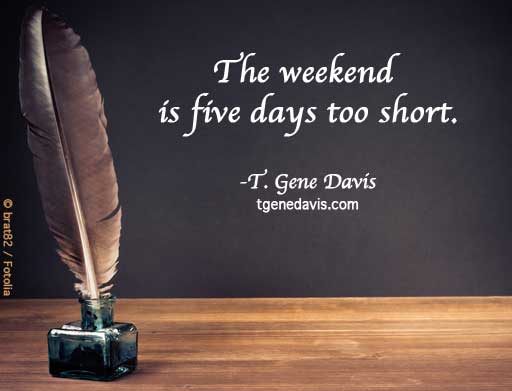
Writer Quotes


Writing tips, writing prompts, and book reviews. Basically all writing.

I’ll confess, I didn’t know that the London Bridge that I’ve read about in my favorite British literature now resided in the USA. I assumed that London Bridge had been torn down and occupied a lowly place in some landfill over in England. Surprise and a bit of astonishment hit me when a co-worker mentioned that London Bridge moved to Arizona back in the 1970’s. In my experience, bridges don’t typically relocate, and definitely don’t emigrate.
I immediately texted my wife and asked if she wanted to pack and take the family to Arizona after work.

Blogs are a wonderful way to share information in an informal, conversational manner. Even the most stuffy business can share marketing material quickly and with a minimal amount of technical knowledge using a blog. Long gone are the days of renting server space from an ISP just to create every single content-filled web page by hand or with hand modified templates. Now, blogging has opened up the web to even the most technically challenged.
If you blog, or even just want a few easy-to-create web pages, the two 900-pound gorillas of the blogging world are WordPress and Blogger. With both tools you can create a place for web content for free, and associate with other content creators in your field. There are a few other big blogging platforms, such as Tumblr, but I’ll stick to WordPress and Blogger for this review. Continue reading “WordPress vs Blogger … Pros and Cons”
Black Lagoon is a 29-episode, dark anime released from 2006 to 2011. Black Lagoon is packed with guns, gore, death, and chase scenes. And true to adult anime form, all the psycho, gun-wielding women look like they spend their off-hours working as fashion models. However, the stories and characters are well developed and worth some time.
From a writer’s point of view, watching the main characters develop over the three seasons of Black Lagoon gives perspective on what makes a strong story. Without the characters, this anime is a simple shoot-’em-up cartoon about smugglers. The depth of the main characters, Rock and Revy, holds the story together. Despite some of my criticisms mentioned below, I enjoyed to series and will likely watch it again if I ever find myself with some spare time and an empty watching queue.
If you decide to watch Black Lagoon, you’ll want to watch the subtitled version. The translations and dialog in the dubbed version come off a cutesy and trite. The only downside to watching the subtitled version is that the spoken English in the subtitled version is so bad you might need to read the subtitles to figure out what is said.
One of the characters mentions that Revy is an American with a thick New York accent. You won’t get that from the voice acting in the subtitled version, but it’s better than the dubbed version where Revy sounds like a California valley girl. Again, if you watch Black Lagoon, watch the sub, not the dub.

Every day, great stories miss getting a fair reading because of these three common mistakes. If you follow these three tips, around 99% of your competition fades away. Most of your competition isn’t going to even take time to read this list.
1) Remove passive sentences and passive voice.
Passive sentences, … Ick. Passive voice, … Double ick. Imagine a greasy-haired, oily-faced teen, who’s worn the same smelly clothes for a week—that’s how editors look at passive sentences and passive voice. For brevity, I refer to them both as passive sentences.
Around 75% of all stories I receive, I reject because of passive sentences. Get your story noticed by removing every possible passive sentence. After removing them, go through and fix all the impossible-to-remove passive sentences, too. Removing passive sentences will feel awkward to novice writers. After removing them regularly, you will discover that you don’t use passive sentences in first drafts anymore.
In case you don’t know how to spot and remove passive sentences, check out my passive sentence post. Continue reading “Eliminate 99% of Your Competition”

As I’ve mentioned in other articles, writing a great story is not enough to sell your story. Among other things, your presentation needs to look professional. If you want to be treated professionally, format your story according to industry standards. You can vary slightly from the standards according to your tastes, but keep close to the standards so as to avoid looking amateurish.
All stories submitted to my blog, or any other publisher, should be in standard manuscript format. That format is different for plays and novels. I’ve been submitting my own stories since the 1980’s and the format has essentially remained the same. Unfortunately, many excellent stories get rejected just because they are poorly formatted. Continue reading “Standard Manuscript Format”
Congratulations! An editor loves your prose. You’ve sold your story. Feel wonderful. You should.
After the euphoria collapses, you wonder when the fan mail and comments will start pouring in. Experienced authors acknowledge, selling the story is only one of many steps necessary when building a fan base.
Selling your story to readers begins before you get the editor hooked. You must write your story for your market—the web skimmer. Most magazines publish or advertise stories on the web, and most users of the web skim. Close to 80% of all people visiting your story or story’s advert will skim the page, rather than read the page.
Gaining readers is the act of converting skimmers into readers through a three step combination of hooking them with a great title, convincing them to read on with an engaging first sentence, and pulling them into the story with a compelling first paragraph. I’ve heard this approach summed up with the words, “Catch, grab, and keep.”
Passive voice and passive sentences ruin great plots. They lack power and authority. Timid writing bores readers. For this discussion, I lump passive sentences and passive voice under the single term of “passive sentence”.
Passive sentences do not engage readers. Active sentences engage readers. This leads to editors rejecting stories, and readers yawning. Then, authors are stumped as to why people don’t like their story containing a wonderful plot.
As I see it, three types of passive sentences sneak into stories. First, sentences that should seethe with action become passive. Second, authors choose the wrong subject for their sentences. Finally, descriptions slow down the action.
Fixing passive sentences filled with action, simply requires removing the form of be. For example, Continue reading “Passive Stories”
Anyone that writes science fiction knows that the biggest challenge to writing sci-fi is that if it is near-future science fiction, the science fiction elements can turn into science fact before the story gets published or much press. I can’t even believe the number of Star Trek like inventions that have surfaced in my lifetime. I expected most of this to never see the light of day during my lifetime.
The more savvy science fiction enthusiasts will point out that we are approaching what is referred to as the singularity. Comparing scientific research to a house fire, the singularity is the point where scientific discovery explodes in much the same way a burning room experiences flashover. At the point of singularity (and after) it will be impossible to humans to keep up with learning everything that is discovered. Computers will likely take over the scientific discovery process leaving us well in their dust.
I’m sure science fiction will become even more difficult to write at that point.
Lots of authors looking to submit stories to my science fiction, fantasy, and horror stories blog have also wanted help with their writing. This writing blog is designed to provide that help. Expect a large variety of helps ranging from writing prompts, book reviews, and writing tips.
I look forward to years of sharing with you and hearing your feedback!